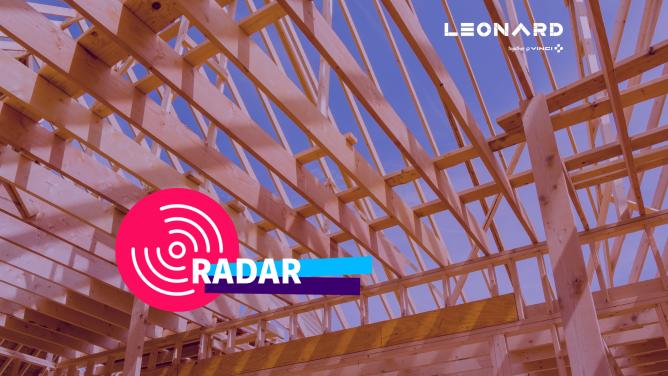Svante raises $318 million for its carbon capture technology
Canadian startup Svante has just raised $318 million in series E funding, with oil company Chevron as the main investor, via its Chevron New Energies fund. The funding round also includes 13 new investors, including funds affiliated with 3M, Samsung and United Airlines.
This new funding will go towards building two carbon filter manufacturing facilities used to capture carbon in industrial plants. Svante’s technology is based on filters coated with solid adsorbents based on nanomaterials, which trap the carbon dioxide released with industrial combustion gases. The CO2 is then concentrated for storage or for industrial uses.
Svante claims its technology is suitable for various applications, including the production of hydrogen, pulp, lime, cement, steel, aluminium and chemicals. The solution has only been deployed at three pilot facilities so far, including a Chevron facility in California and a Lafarge cement plant in Richmond, British Columbia.
Eventually, Svante’s technology can also be used for “direct-air capture”, which consists of extracting CO2 from the air around us. Since it was founded in 2007, the British Columbia-based company has raised a total of $474 million. It now has 216 employees.
3D printing introduced on construction sites in Japan
Japanese conglomerate JGC Holdings Corporation has announced its goal of full-scale introduction of 3D printing on its construction sites. To achieve this, it’s relying on the technology of the Danish manufacturer of concrete 3D printers, COBOD International.
Last summer, the first equipment was installed at the construction site of a biomass power plant in the city of Ishinomaki. It was used to create a piping support structure, as such, the foundation formwork was produced using 3D printing. 3D concrete printing typically requires special premixed mortars, but JGC was able to 3D print with locally available cement and aggregates.
This initial installation acts as a pilot, before a large-scale introduction of 3D printers across the company’s various projects. The group believes that the COBOD system could significantly reduce formwork construction time, eliminating the need for on-site formwork assembly and demoulding. The company calculated that 3D printing could cut this process down from 16 to 8 days. It also believes that less-trained staff could use the equipment, with training of new recruits taking around one week.
Kenyan startup Kubik raises funds for its solution that turns recycled plastic into building materials
The Nairobi-based startup Kubik has just had its first fundraising to develop its production capacities in East Africa. As specialists in recycled and low-carbon materials, Kubik transforms plastic waste into construction materials. These are 40% cheaper and five times less polluting than conventional materials.
Kubik already works in partnership with real estate developers, generating multi-million dollars in revenue. In order to reach its production goals, the startup plans to build its first factory by September 2023, reaching a recycling capacity of 45 tonnes of plastic waste per day. The materials produced will be used to build approximately 5,000 affordable homes per year, avoiding more than 100,000 tonnes of carbon dioxide and greenhouse gas emissions, while supporting the creation of more than 10,000 jobs in the waste collection and construction sectors.
Thanks to this fundraising, the South-African fund GIIG Africa has become the startup’s main investor.
Accacia raises $2.5 million for its decarbonisation solution for the construction industry
Accacia, a decarbonisation platform for the real estate and infrastructure sector, announced in December it had raised $2.5 million in seed funding. The round table led by Accel and BCapital also includes Blume Ventures, Good Capital, Rainmatter Fund and Loyal VC, as well as several business angels.
Founded in 2022 by Annu Talreja, Piyush Chitkara and Jagmohan Garg, Accacia works with major asset managers, developers and real estate operators to provide them with tools for monitoring and reducing the carbon footprint of their buildings. The startup has already deployed its solution to over 20 million square feet of institutional real estate across Asia.
The capital raised from this round will be used to expand its presence in Southeast Asia, the Middle East, the US and Canada over the next year.
There’s more…
Icelandic startup Treble Technologies raises €8 million to reinvent building acoustics
Togal.ai wins The Big5 startup competition in Dubai
Indian platform Onsite raises $1.5 million to develop construction site tools


